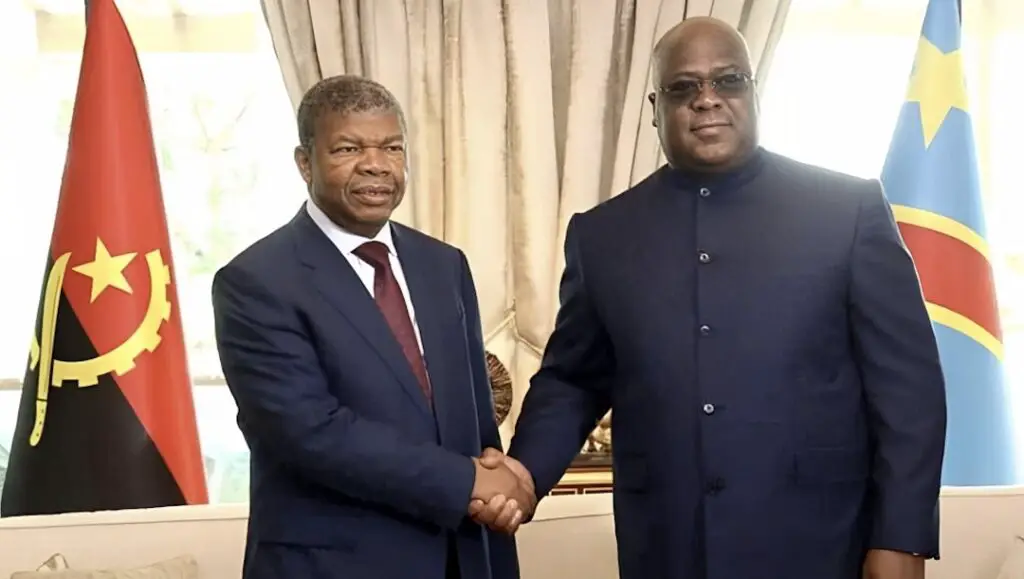- The signing authorizes the ownership of the Common Interest Zone, with Angola and the DRC each holding a 30% stake. Global energy major Chevron, the block operator, will take a 40% share.
- The Angola-DRC deal sets terms and general principles for exploration, production sharing, and ownership of the highly promising offshore Common Interest Zone.
- For Angola, sharing knowledge and expertise with the DRC will not only strengthen their bilateral relations but also power overall growth and stability of the region.
In an historic agreement, Angola and DRC are teaming up for the development of Chevron-owned oil block that will see the exploration, and production of hydrocarbons in the Common Interest Zone located on their maritime border.
The signing ceremony took place on Thursday, July 13th, in Kinshasa, with Angola’s Minister of Mineral Resources, Petroleum, and Gas, Diamantino Azevedo, and the Democratic Republic of Congo’s Minister of Hydrocarbons, Didier Ntubanga, formalizing the agreement.
The agreement marks the culmination of nearly two decades of negotiations between the two countries. It establishes the terms and general principles for exploration, production sharing, and ownership of the highly promising offshore acreage.
The Common Interest Zone is situated in the offshore waters north of Angola’s Block 1, 15, and 31, and south of Chevron-operated Block 14. As per the Memorandum of Understanding signed in June 2023, Angola and the DRC, each hold a 30 percent interest in the zone. The maritime area shows strong indications of hydrocarbon deposits and leads.
Angola and DRC to develop offshore basin
With the agreement now finalized, Angola and DRC will embark on collaborative efforts to develop the offshore basin. The signing authorizes the ownership of the block, with Angola and the DRC each holding a 30 percent stake. Further, global energy major Chevron, the block operator, will take a 40 percent stake.
This signing marks the end of decades-long talks between the countries and underscores the commitment of Ministers Azevedo and Ntubanga to advancing oil and gas exploration through regional collaboration.
For Angola, this agreement provides an opportunity to leverage its experience as a major oil producer. It also offers the country fresh impetus to fuel the growth of its domestic market and the regional economy. Angola is establishing itself as a powerhouse in the African oil industry. Already, it has reserves of nine billion barrels and a daily production of over 1.08 million barrels (as of February 2023).
Angola’s success in harnessing its own resources for economic growth positions it as an ideal partner for DRC. By utilizing its position as a significant oil producer, Angola aims to promote regional basin development. The move will also see Luanda foster cooperation within the African energy industry. Sharing knowledge and expertise with the DRC will strengthen their bilateral relations and contribute to the overall growth of the region.
Unlocking the DRC’s oil potential
For the DRC, this agreement represents a breakthrough in its pursuit of new oil supplies and joint development opportunities. The deal and the subsequent development of the block will enable the DRC to increase its daily crude oil production. With up to five billion barrels of reserves, the agreement with Angola opens up multiple avenues of cooperation and information sharing.
This partnership allows the DRC to benefit from Angola’s extensive expertise and experience as a prominent oil producer. Kinshasa will benefit on technology transfer and best practices in exploration and production. It will also gain through refining and processing techniques, and efficient management of oil resources.
Angola’s valuable insights and lessons will prove instrumental in enhancing the DRC’s oil sector. Kinshasa seeks to optimize operations, and maximize the economic potential of its petroleum resources.
The African Energy Chamber is lauding both governments and their respective teams for their exceptional leadership and unwavering commitment to successfully finalizing this monumental deal. The negotiation process spanned an impressive two decades, during which the combined efforts of both governments were crucial in overcoming various challenges and preventing further delays on the project.
This landmark agreement not only paves the way for extensive exploration in the DRC but also as a catalyst for regional collaborations. By fostering partnerships and cooperation, this agreement unlocks significant opportunities for cross-border initiatives and mutually beneficial ventures among neighbouring countries.
ANAPI promoting DRC to global investors
The mineral-rich DRC has been actively courting investors worldwide ever since President Felix Tshisekedi assumed to power. The country’s National Agency for the Promotion of Investments (ANAPI) is playing a vital role in wooing investors. Mining and agriculture have been identified as prime sectors for foreign direct investments across the provinces.
ANAPI aims at streamlining the investment process and offers investment facilitation services. Additionally, the organization helps new foreign investors and increases transparency in procedures. What’s more, the agency is reassuring stakeholders that DRC holds vast potential and their investments will pay significant returns.
